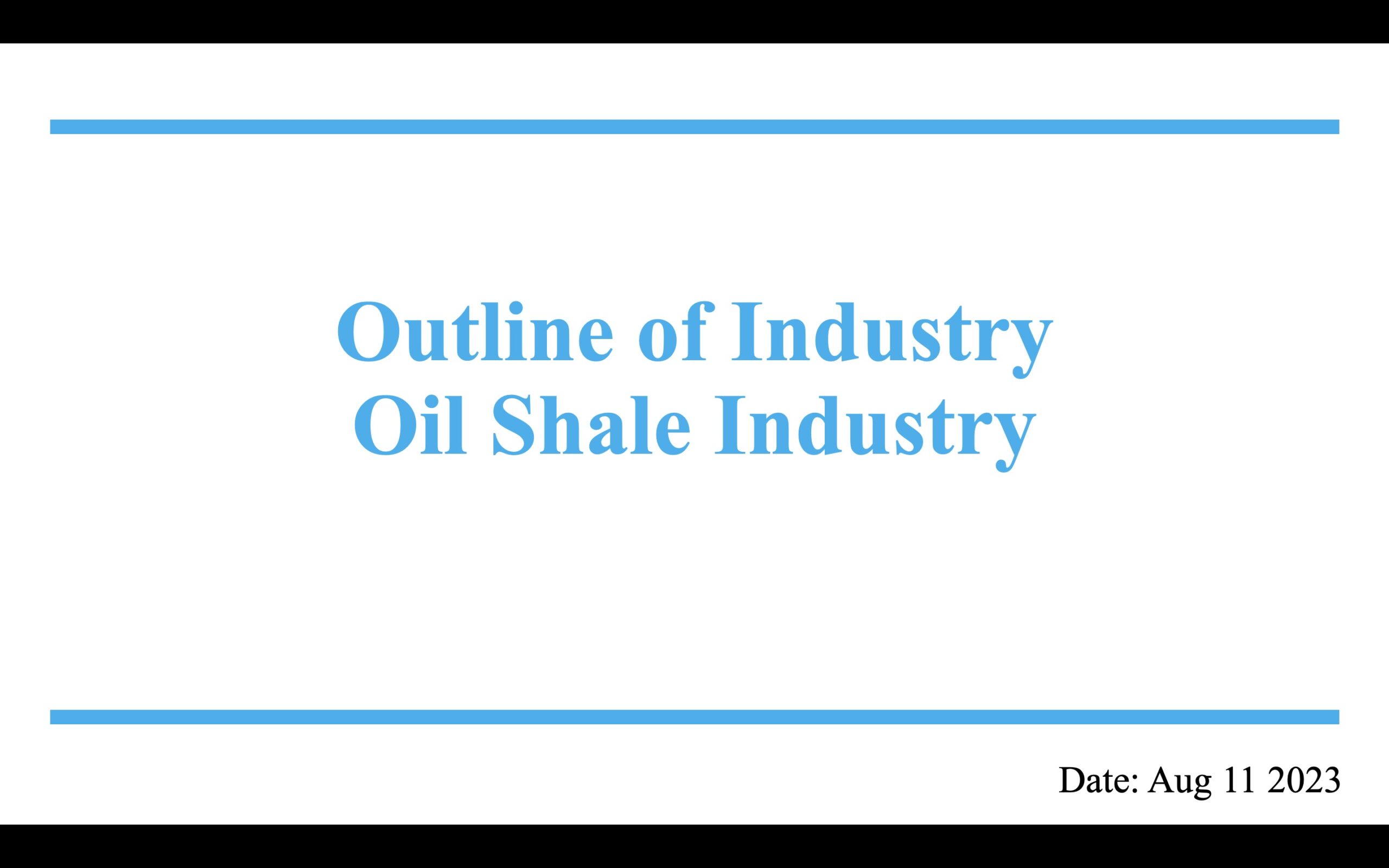The oil shale industry is a sector of the energy industry that is focused on the extraction and production of oil from shale rock formations. Shale is a sedimentary rock that is rich in organic matter and is found in large deposits around the world, particularly in countries such as the United States, Russia, China, and Australia.
Oil shale is considered an unconventional source of oil and is distinct from conventional oil, which is extracted from underground reservoirs. Unlike conventional oil, oil shale must be processed in order to extract the oil contained within it. This processing typically involves heating the shale rock to high temperatures, which causes the organic matter to break down into oil and gas.
The oil shale industry has a long and complex history, with early attempts at commercial production dating back to the late 19th century. However, it was not until the latter half of the 20th century that the industry gained significant momentum, driven by rising demand for oil and advances in technology that made extraction and processing more economically viable.
Today, the oil shale industry is an important part of the global energy landscape, and is the source of a significant portion of the world’s oil production. The industry is highly competitive and is characterized by large-scale operations that extract and process oil shale on a massive scale. The largest producers of oil shale are the United States, Russia, China, and Australia, and the industry generates billions of dollars in revenue each year.
The oil shale industry is subject to a range of regulations and standards aimed at ensuring the safety and environmental sustainability of production processes. For example, many countries have implemented regulations and standards that govern the extraction and processing of oil shale, including requirements for the safe disposal of waste and the protection of water resources.
One of the key challenges facing the oil shale industry is the need to ensure that production processes are economically viable, efficient, and sustainable. The extraction and processing of oil shale is energy-intensive and can have significant environmental impacts, including greenhouse gas emissions, water usage, and land disturbance. The industry must also address concerns about the availability of water resources, which are essential for the processing of oil shale, and the need to ensure that waste is properly managed and disposed of.
The oil shale industry has responded to these challenges in a number of ways, including investing in new technologies and processes that improve efficiency and reduce waste, and working to reduce the environmental impact of production processes. For example, many companies have implemented practices such as water recycling and reuse, improved energy efficiency, and the use of renewable energy sources, in an effort to reduce their environmental impact and improve the sustainability of their operations.
Despite these efforts, the oil shale industry remains a source of significant controversy and criticism, particularly with regards to the environmental impact of production processes and the use of water resources. For example, the extraction and processing of oil shale can result in the release of greenhouse gases and other pollutants, and the industry has been criticized for its impact on local communities and water resources.
In conclusion, the oil shale industry is an important part of the global energy landscape, and is the source of a significant portion of the world’s oil production. The industry is characterized by large-scale operations and is subject to a range of regulations and standards aimed at ensuring the safety and sustainability of production processes. While the industry faces significant challenges, including the need to ensure that production processes are economically viable, efficient, and sustainable, it remains an important part of the global energy landscape and will continue to play a key role in shaping the energy landscape for years to come.



Comment